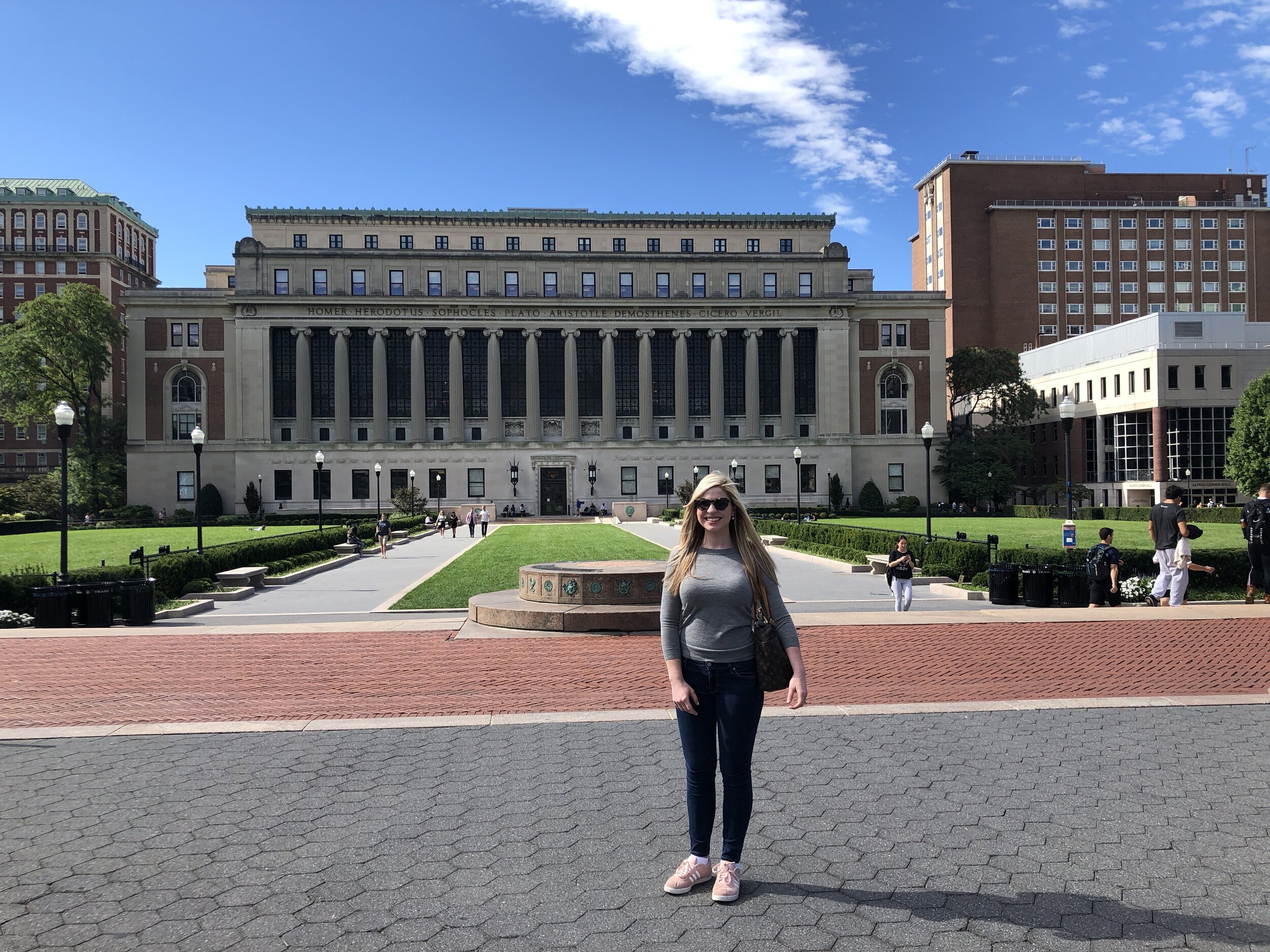Many of our seniors have already committed to their schools for next year - hooray! At this point in the cycle, we tend to get a lot of questions from students about how to approach their freshman year. Soon, students will receive information about housing, course registration, healthcare, orientation, recommendations for sorority recruitment… no wonder it can get overwhelming!
[Side note: if any of our current seniors do need help with this, let us know and we can assist! We don’t typically advertise this but we help a whole bunch of students each year with all of the above upon request! Just last week I had a meeting with a graduating senior to start mapping out her four-year plan at UVa, which inspired this post!]
At the same time our seniors are getting bombarded with course registration information, our juniors continuing to plan their lists, and many don’t have a sense at all about why it’s important to pay attention to the types of general education requirements that their schools of interest have.. let alone the differences between curricula and figuring out where their own preferences come in to play!
In our new midweek blog series, we’ll be covering some of the different general education requirements across several different colleges and universities. But to kick it off - what are general education requirements, anyway?
The answer definitely depends on the school. At some colleges and universities, there are certain required courses that every single student must take. At Notre Dame, for example, every single student on campus has to take the Moreau First Year Experience course during the fall and spring of their freshman year.
At other institutions, there are types of required classes (i.e. students must take one history class, one math or science class, etc.), but within that category, there’s a lot of variation between the flexibility offered. At Vanderbilt, every student needs to take a lab science class - that’s hardcore for a non-science major - but there’s choice involved because the students can pick from chemistry vs. biology and so on. Other schools approach the idea of choice from a more flexible and liberal standpoint, with a lot of options for courses that fulfill a very broad requirement (so students can take the Mathematics of Flight instead of Linear Algebra if that is more their speed!).
There are also schools that have only a few requirements, typically including one or two writing-intensive courses and a language requirement, but no other general education requirements. And finally, there are the supremely liberal schools which don’t have required classes at all!
But that isn’t all that students have to consider. Sometimes, specialized colleges, divisions, or programs within a university will have their own curricula that are separate from the general curriculum of the institution (our post next week on UVA’s curriculum will offer some examples of this from a liberal arts standpoint). This is true in many schools’ pre-professional divisions; for instance, during the first year of an engineering or business program, most students take a very similar course load before choosing a specialty in their second year.
So with all that confusing information, is it really worth the time it takes for prospective students to parse through the curriculum options when choosing a college? YES, YES, and YES! At the end of the day, this is one of the criteria that is most going to impact your college experience. Here are some things to think about when deciding which undergraduate curriculum is right for you:
1. Do you know what you want to study, or do you need more time to explore?
Students who are eager to jump right into specializing in their field might get frustrated with a core curriculum - why am I taking this history course if my true passion is engineering?? These students might look for schools that will allow them to focus on their major right from the beginning, with fewer breadth requirements.
Some students don’t know exactly what they want to do, or they want to consider a few different options. Students like this might benefit from the structure of the core curriculum, that will allow them to stretch in new directions and take classes that they might not have considered on their own. The core curriculum can really aid students in discovering their passions and strengths!
2. Do you like to forge your own path, or do you thrive under structure?
At a school like Brown with an extremely open curriculum (which we’ll describe in more detail in a later post!), students really need to be self-motivated in order to make the most of their opportunities. For a student that does not have a clear vision for their college experience, this huge amount of choice can feel more overwhelming than exciting. It’s like the college version of the menu at the Cheesecake Factory!
For students that like more structure and guidance, especially in the first year or two at a new place, required courses (such as a mandatory, small-sized freshman seminar) can make it more comfortable to ease into course selection and meet classmates. If everyone on your freshman hall is taking some of the same classes, it gives you something to bond over while working on those papers!
3. Do you intend to pursue more education after college?
Some post-graduate programs, like law school or medical school, will have particular classes that they want to see on a student’s transcript. While pre-professional advisors on campus can help with that, it is important for a student who is interested in further education to make sure that their intended school’s curriculum provides them with enough flexibility to take the courses they need, and enough structure so that nothing gets left out.
4. Do you really struggle with certain subjects or really find success with others?
If having to take a math class is going to ruin your entire first semester, it is better to know that sooner rather than later! While some schools have so many options for their requirements that any student could find something that would enjoy, others really stress a breadth of knowledge. Only you can know for sure whether having to take a certain class is a dealbreaker for you when thinking about your college of choice.
5. Do you like to be pushed outside of your comfort zone?
Some students who answered “yes” to the question above may still be better served by a core curriculum which allows them to push out of their comfort zone and expand their knowledge base. Some core curricula even include experiential learning opportunities, like internships and community service experience, as part of the requirements for students to graduate. If you are someone who really likes to take on new adventures, but isn’t sure quite where to start, a core curriculum that forces you to move outside of your comfort zone could be for you!
In every single one of our initial brainstorming sessions with students, we bring up these issues. One thing we’ve learned is that curriculum considerations can present a brand-new idea for many students - but we hope that as you’ve read this post, you’ve discovered that it is worth doing the research!
One important thing to remember is that wherever you go to school, it is unlikely that the core curriculum will look like what you are used to from high school. Rather than only a handful of courses to choose from, you may have hundreds, and you likely will have a lot more flexibility in your schedule - even at the school with the most strict requirements (looking at you, Columbia!).
You might also surprise yourself. When I applied to college, I was positive that I wanted a flexible curriculum because I knew exactly what I wanted - and didn’t want - to study. I am one of the only people I know who never took calculus (yep - in high school or college!) and I was dead set against going to a school that would require me to take specific courses. But then I ended up changing my entire major and undergraduate division because I fell in love unexpectedly with the subject matter from the ONE course that Wash U did require. Go figure, right?
Whatever curriculum you choose, we hope that your college experience will open doors and let you explore new subjects as well as specialize in something you love.
Stay tuned for an in-depth look at the curricula at some of our students’ top choice schools!












